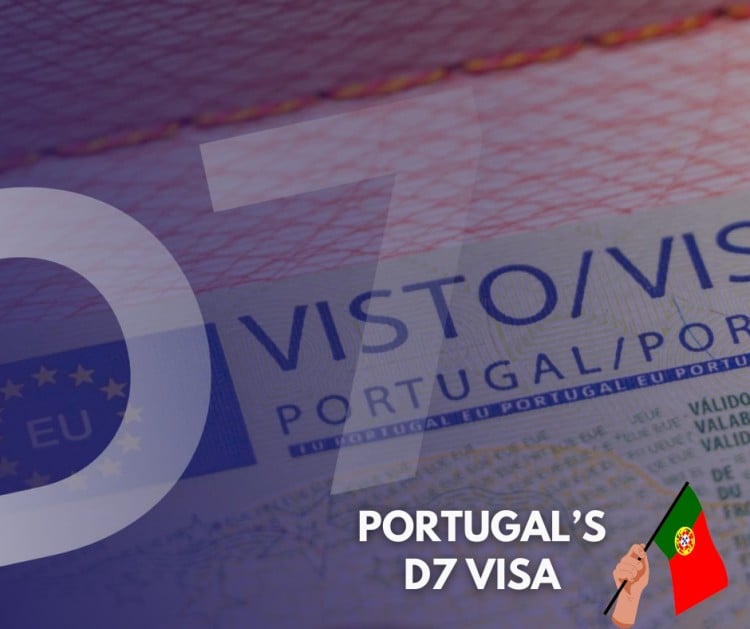Here Is Valuable Information To Migrate To Portugal

In 2019, Portugal received 590,000 immigrants, while in 2020, that number increased to 661,000. What is it about the country that makes it so appealing? The answer could be an excellent climate, lovely beaches, Mediterranean cuisine, high quality of life, attractive tax incentives, and work opportunities. There are three types of visas necessary for immigration: short, temporary, and extended stay. There is also a fourth type of visa called D7, which grants residency to those with their income. How does it work? Although there are resources like Where Can I Live explain Portugal’s D7 visa thoroughly, the information given below will provide you with all the crucial details related to it before you plan an international move.
Why is it called a D7 visa?
Another name for the D7 visa is Passive Income or Retirement Visa. The Portuguese government introduced it in 2007 to allow non-EU/EEA/Swiss citizens to apply for temporary residency. However, only those who have a stable means of income are eligible to apply. The revenue could come from real estate, pension, intellectual or moveable property, or other sources. After obtaining the visa, you become entitled to a temporary residence permit.
Does it have a validity period?
Once you obtain the visa, you will be granted a residence permit valid for two years. You will have to spend six consecutive months or eight non-consecutive months to maintain the permit’s validity. After two years, you can choose to renew the permit for three years, thus adding your total stay in Portugal to five years. The minimum stay for this period is also the same as mentioned above. You can apply for a permanent residency or citizenship at the end of five years. You should renew the card on time to maintain its validity.
Eligibility requirements for the permit
There are a few eligibility criteria that you will need to fulfill to be considered for the permit. The first is a NIF, a unique tax identification number issued by the tax authorities. It has nine digits and is different for every person. It is mandatory for carrying out any financial transactions in Portugal. You will also need a bank account with a minimum amount deposited in it. However, as most banks don’t allow the opening of accounts remotely, you will have to use a written authorization like a power of attorney to do it. Other requirements include proof of accommodation, financial stability, health insurance, and a criminal record certificate.
How much passive income do you need?
The D7 visa grants you a residency permit only if you have sufficient passive income. These could come from royalties, transferable equity, real estate, pension, intellectual property, royalties, or income from deposits with a fixed interest rate. The amount should be sufficient to enable you to live comfortably, without relying on your salary as the source of income. The minimum amount is at least €8,460 a year for individual applicants who are planning on moving. Married couples should have a passive income of around €12,690. For dependent children under 18 years, the amount is €2,358. You will have to provide a receipt or document to prove the sources of such an amount.
What are some of the documents required?
You will need some documents to obtain a residency permit in Portugal, and it is also advisable to keep multiple copies of each since you never know when you need them. All your documents must be translated into Portuguese, the language in which all official work is carried out. A few of these are the D7 visa application form, passport, passport-sized photos, proof of passive income, certificate of criminal record, proof of accommodation, valid travel insurance with health coverage, and about six months of bank statements.
There are websites like Where Can I Live to explain Portugal’s D7 visa process, requirements, and updates related to the residency permit. However, it is crucial to know the basic information mentioned above before deciding to settle in the beautiful country of Portugal.
We hope you found this blog post on What you should know about Portugal’s D7 visa? to be useful. Be sure to check out our post on Moving to Spain: 6 Things You Should Have in Mind for more great tips!
Have Experience in the Moving Industry? Want an Additional Income Stream? Work With All Around Moving!
There are no recurring expenses, except purchasing your own leads. We share profits 50-50 with you, moving relocation consultants from all jobs you book with us. Partner with us and we’ll help you make money. Click here to learn more.





